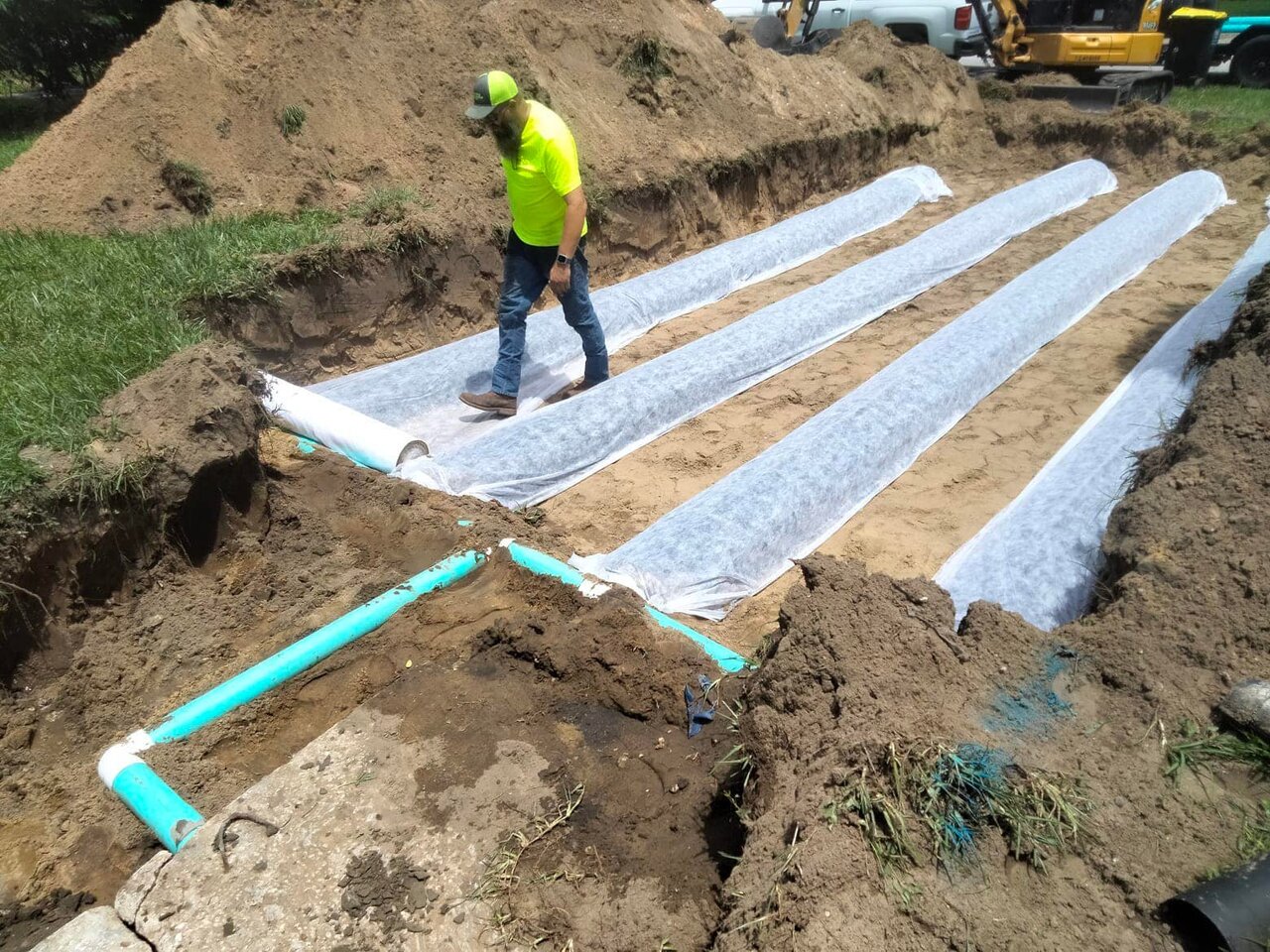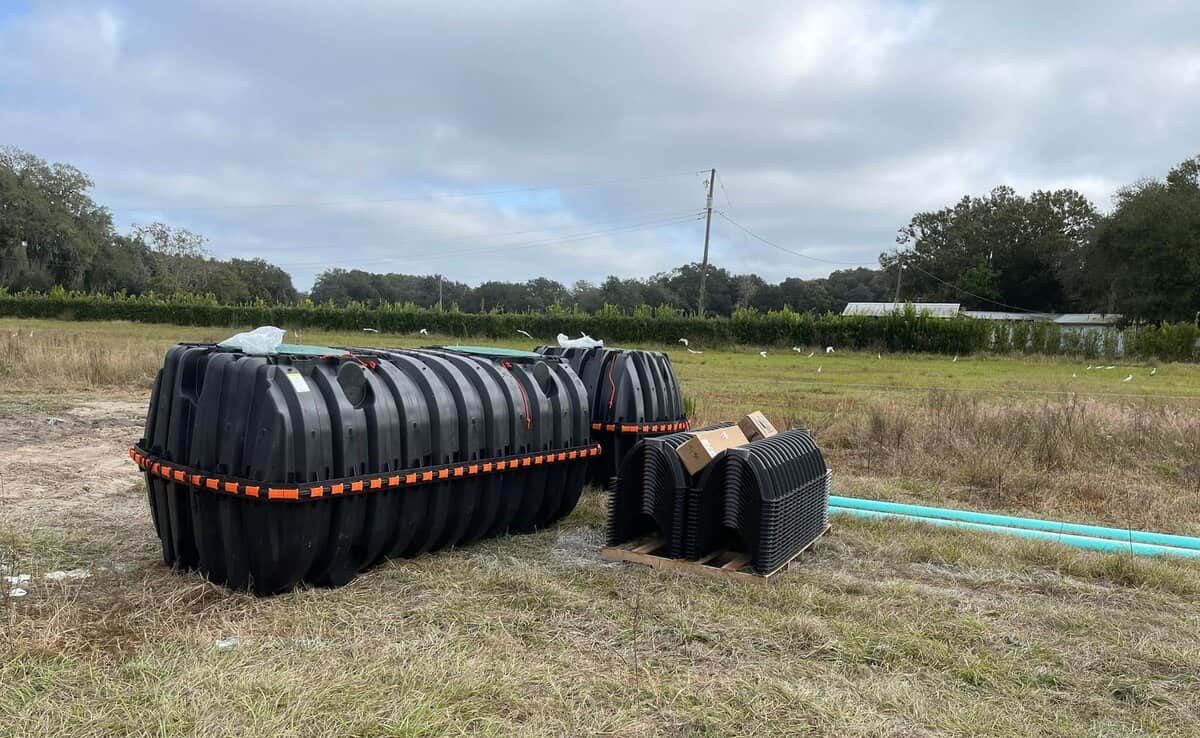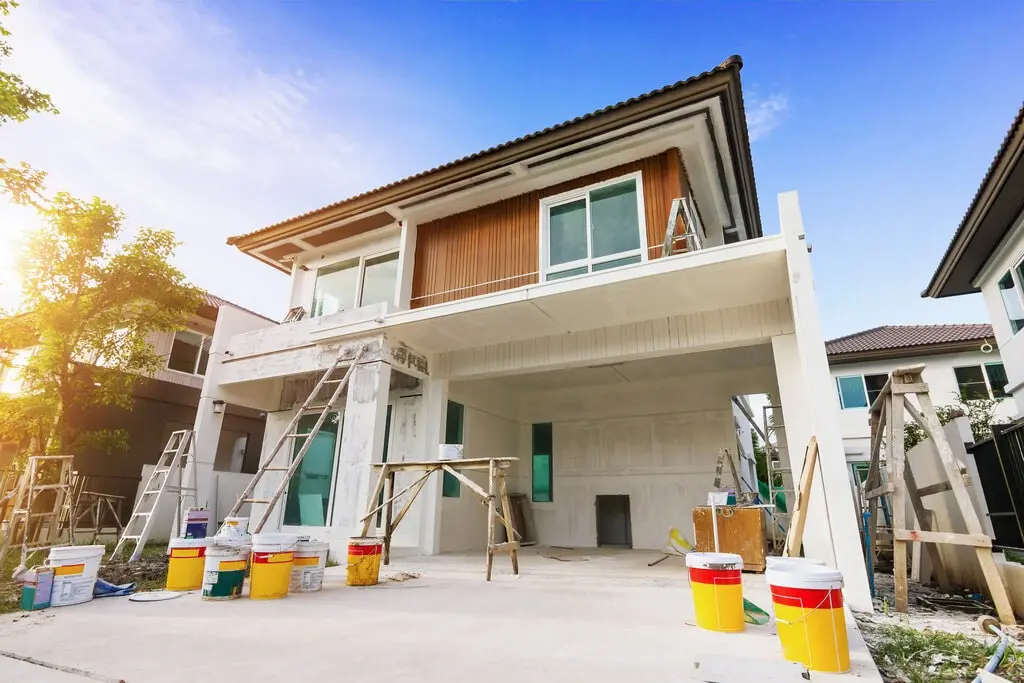For many homeowners in the Sunshine State, a septic system is an essential part of their property. In fact, according to the Florida Department of Environmental Protection, approximately one-third of Florida’s population uses an on-site wastewater treatment system (aka septic system).
If you are one of those homeowners, it is important to be aware of the basics about how a septic tank works and what you can do to maintain yours. Here are some essential things you should know about a septic system:
- Your septic system is made up of 2 main parts – the septic tank and the drain field. The septic tank collects wastewater and stores it temporarily, allowing solids to settle at the bottom while releasing liquids into a drainfield where they can be absorbed by the soil.
- Like most states, Florida has specific regulations regarding the installation and maintenance of septic systems. All tanks must be designed and installed according to state standards, and regular inspection, pumping, repairs, and replacement are essential for long-term operation.
- Septic tanks should be pumped every 3 to 5 years depending on usage. This helps prevent solids from building up and clogging the system.
- Use water efficiently to reduce the amount of wastewater entering your septic tank. Avoid doing things like laundry, dishes, and showering all at once, which can overload the system.
- Do not put anything other than human waste and toilet paper down your drains or toilets. Grease, oil, food waste, and other items will clog the system and cause major problems.
- Have your septic tank inspected annually by a licensed professional to ensure it is not leaking or overflowing. This can help prevent costly repairs in the future.
- Do not plant trees or shrubs near your septic tank or drainfield. Their root systems can damage the system and cause costly repairs.
- Keep chemicals and detergents out of your septic system. These products are toxic to bacteria in the tank and can damage its components over time.
- Have any plumbing problems fixed quickly – leaking pipes, running toilets and other plumbing issues can increase the amount of wastewater entering your septic system, potentially leading to major overflows.
- Have regular maintenance performed on your septic tank by a professional septic company to ensure that it is functioning properly. Simple repairs or adjustments can often prevent costly problems down the road.

Things You Must Know About Florida Septic Systems
Are septic systems in Florida different than in other parts of the country? The weather, soil conditions, and other natural elements in the state are unique compared to other states, and all these factors play an important role in how a septic system functions properly.
1. Soil Type
Some parts of Florida have very sandy soil, which can present several challenges when it comes to installing a septic system.
First, sandy soils are known for being particularly quick at draining water away. This means that, as effluent gets processed through the drain field, there is less time for contaminants to break down before being absorbed into the groundwater table.
Additionally, because of its porous nature sand is prone to clogging, so frequent septic tank pumping may be required as a result.
Due to these issues, special consideration must be taken when installing a septic system in sandy soil. It is important to have an experienced septic professional involved who can assess any potential problems and make sure that all regulations are followed closely.
2. Rainfall
Despite its nickname, the Sunshine State can experience heavy rainfall during certain times of the year. Heavy rains and flooding can have a significant impact on a septic system.
If the water level rises too high it can disrupt the flow of waste, leading to backups and overflows in your system. Rainwater can also cause soil saturation which means that there is less oxygen in the soil around the pipes resulting in anaerobic bacteria taking over instead of aerobic bacteria that breaks down waste. This can result in malodors, surface ponding, and reduced treatment efficiency.
If rain is causing problems with your septic system then it is important to take steps to address it immediately. Installing backflow valves or check valves on drain pipes leading into the system can help keep wastewater from backing up into your home and creating additional issues. Additionally, installing drains around your house and yard that lead away from the septic system will help divert standing water away from it and reduce its overall load.
3. Humidity
Even humidity can have an impact on how a septic system works. When the air is humid, water does not evaporate as effectively, so there is more water in the ground. This can make it harder for the septic drain field to do its job, leading to septic tanks filling up faster, clogged pipes, or backups that require expensive septic tank services.
4. Loss of Power
Florida is prone to hurricanes and tropical storms that disrupt power supplies, sometimes for extended periods of time. Although most septic systems operate without the need for electricity, in some cases an electric pump may be installed as part of your system.
This pump is usually used to move fluids between 2 tanks or to move wastewater into the drain field. Without the pump, this process cannot be completed, so you might need to have an emergency plan just in case.
5. State and Local Regulations
Septic system regulations vary from state to state, but in Florida, there are special requirements for any new installations or repairs made to existing systems. Additionally, local health departments have authority over all septic permits which means each county can have its own set of guidelines that must be adhered to.
All these factors contribute to why septic systems are unique in Florida compared to other locations around the United States, making it important for homeowners to be well-informed about any special considerations they may need when it comes to using a septic system on their property.
The Best Septic Company In and Near Lakeland
Septic & Drainfield Depot is the best choice when you need a septic company in and near Lakeland. From septic system installation to pumping or cleaning, we offer a full range of septic services.
As lifelong Polk County residents, we understand the needs of central Florida homeowners and business owners when it comes to their septic systems.
Contact us today for a free septic consultation!







